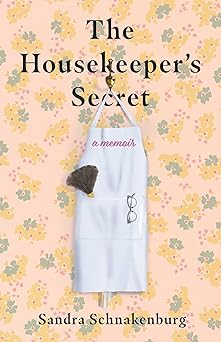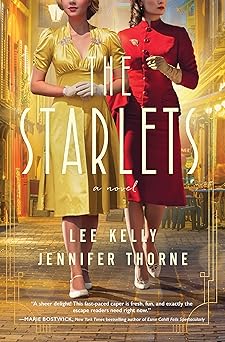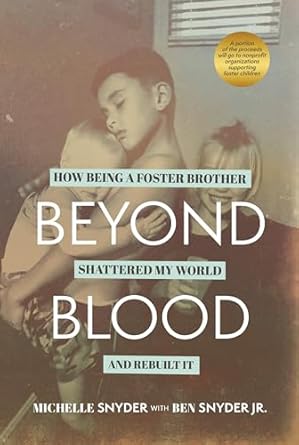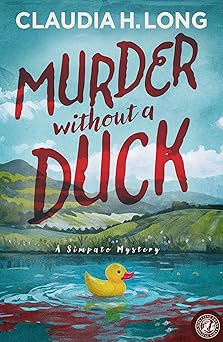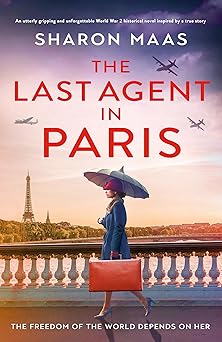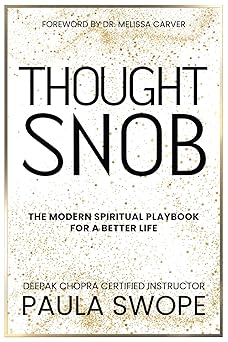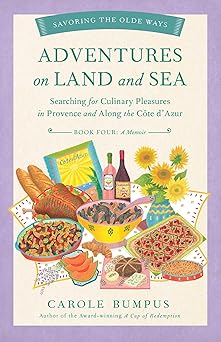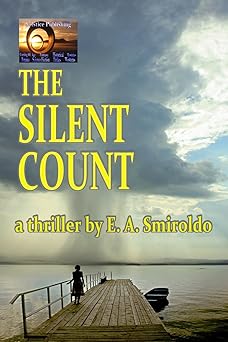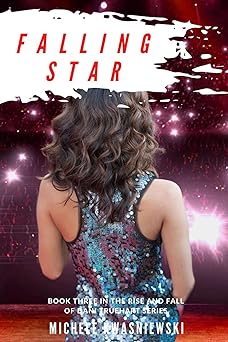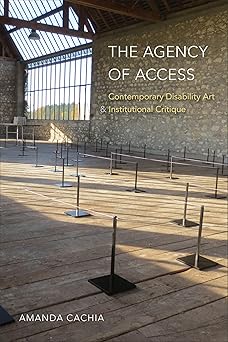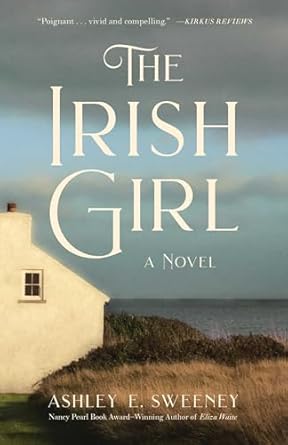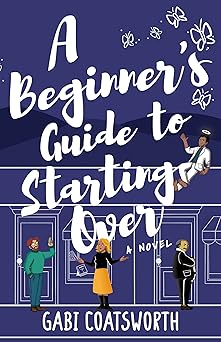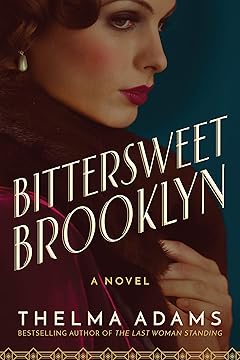My Writing Craft by Ellie Wood, author of The Wildwater Women
My Writing Craft by Ellie Wood, author of The Wildwater Women (HarperNorth, 28 April 2022)
 At its heart, The Wildwater Women is a love song to the Lake District, and I set about crafting it with a love-letter level of care. The writing process was an intense, nine-month relationship, with the book ever-present in my head. I’m from Cumbria originally, but describing the landscape vividly, in a way that truly captures the essence of each lake, hill and tarn, was a challenge. I wanted to conjure what it actually feels like to be here amongst the fells and waters, surrounded by the sights and sounds of each distinct place, so that the story seems as real for those who are familiar with the area as it does for people who have never been.
At its heart, The Wildwater Women is a love song to the Lake District, and I set about crafting it with a love-letter level of care. The writing process was an intense, nine-month relationship, with the book ever-present in my head. I’m from Cumbria originally, but describing the landscape vividly, in a way that truly captures the essence of each lake, hill and tarn, was a challenge. I wanted to conjure what it actually feels like to be here amongst the fells and waters, surrounded by the sights and sounds of each distinct place, so that the story seems as real for those who are familiar with the area as it does for people who have never been.
Being out in the countryside was an integral part of planning the novel, not only because seeing the natural world in motion inspired new ways to evoke it on the page, but also because I often come up with my best ideas when I’m walking or swimming and my mind can really run free.
I spent the first three months developing the characters and plotting the storyline. For me, it was important to have the general shape of the book laid out from the start – a set of key points that I could stand back and look at like a constellation, with enough space in between each event for things to shift should the novel need it. The characters can have a will of their own once they are brought to life!
I created timelines for the main protagonists, imagining the experiences that had shaped them from birth up until the beginning of the book. Having a clear idea of what had made them who they were meant I knew their personalities and therefore how they’d react to certain situations, and the types of things they’d say to each other during a scene. By the time I started writing, they felt as whole as my friends and family members.
I made mood boards of the Wildwater Women’s physical appearances so I could picture them in my mind as I wrote. I knew where they lived and what their homes looked like, and even what they wore. I wanted the four central women in particular to be distinct, fully fleshed out individuals – I honestly think there’s no greater compliment than when a reader says the characters felt real, and that they completely believed in them and their world.
I documented every detail in a scrapbook so that whenever writers’ block struck like a power-cut, I had a bible of notes to help me through the blankness. Knowing I could refer to it in moments of self-doubt was reassuring, and flicking back through it became a comforting ritual.
I chose to open the novel with a prologue so I could include an earlier part of the story, in order to add another dimension and also weave in an extra element of intrigue. I wrote the chapters that follow it in a largely linear way, just occasionally leaping forward to focus on a future section if I found I’d either lost my flow or had a sudden flood of inspiration that I was eager to seize before the idea evaporated.
The novel is primarily from Abby’s perspective, so dialogue was crucial for showing the others’ points of view. The style and tone of the characters’ speech was how I conveyed their different temperaments and the dynamic between them all. Their various turns of phrase and conversational quirks became more definite in my head over time, so that as the book went on I instinctively knew how they would respond. Their voices seemed to stay with me even away from my desk, so I’d sometimes think to myself when I was out and about: I know what Clarissa would say . . .!
The Lake District itself is almost a character in the book. Each area is different, in the same way people have several sides to their personality, and this was something I tried to portray in my descriptions of the various locations the Wildwater Women visit. I really like writing about the light here – even grey, wet days have a certain magic – and I often use it to set the mood of a particular moment.
I knew how I wanted the novel to close before I began typing, but it was more a general sense of how the characters’ tales might culminate, rather than a rigid ending. In fact, the final section of the story contains aspects that I couldn’t have envisaged back at the start. The strands of the plot seemed to build organically as I went along, and instead of exactly resembling the outline I’d put together at the beginning, the finished book had extra facets I couldn’t have thought of before I was further along in the process. In this respect, writing mirrors real life – the finished novel is always a little bit different to the original plan!
—
Ellie Wood was born and raised in the Lake District where she still lives. Passionate about the benefits of getting out into the wild, she’s swum and walked the landscape that inspires her writing since she was small. The Wildwater Women is her debut novel.
Follow her on Twitter @EllieWoodAuthor
THE WILDWATER WOMEN
 Sometimes the best things in life happen when you dare to get out of your depth.
Sometimes the best things in life happen when you dare to get out of your depth.
Abby lives and works in the heart of the Lake District. She splits her time between bringing up her daughter, working in the Plum Pie Bakery – and dreaming of the time before her husband, Ben, left.
Lori is on holiday from the States, hoping to find her way to the lake that she’s looked at for years in a picture on her wall back home.
Rebecca is contemplating taking the plunge too. Despite her immaculate appearance Rebecca is keeping quiet about a childhood trauma which has left her scared of the water.
Clarissa is the founder of The Wildwater Women. An all-year-round open-water swimming veteran, and with a fearsome manner, she knows the lakes like no one else and her boundless energy defies her years.
Four women, all from very different lives, all with reason to step into the water and wash away their past. But will the friendship they build be enough to keep them afloat when they each must face their fears?
BUY HERE
Category: Contemporary Women Writers, How To and Tips




